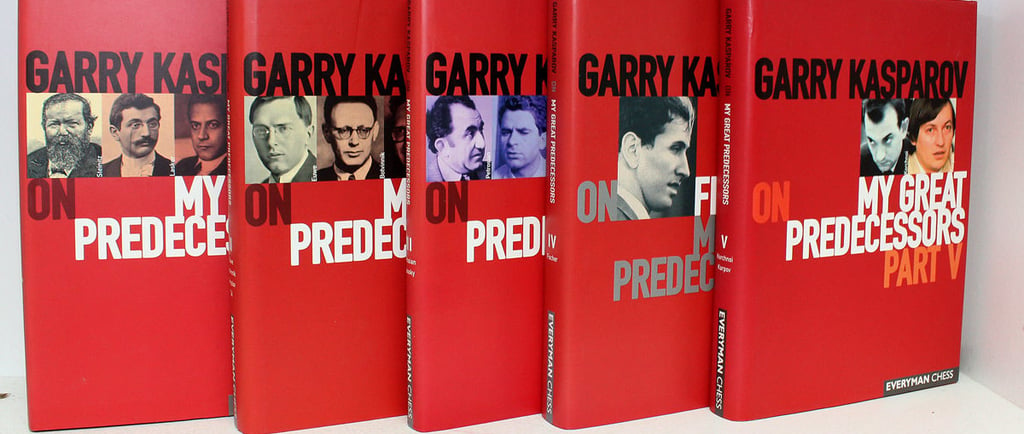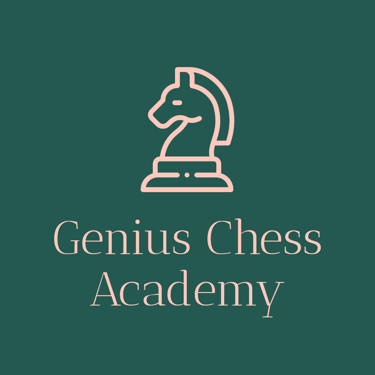Chess Books
All popular Chess Books paperback and latest eBooks on demand


Part1: The battle for the World Chess Championship has witnessed numerous titanic struggles which have engaged the interest not only of chess enthusiasts but also of the public at large. The chessboard is the ultimate mental battleground and the world champions themselves are supreme intellectual gladiators. This magnificent compilation of chess form the basis of the first part of Garry Kasparov's definitive history of the World Chess Championship. Garry Kasparov, who is universally acclaimed as the greatest chessplayer ever, subjects the play of his predecessors to a rigorous analysis. Part one features the play of champions Wilhelm Steinitz (1886-1894), Emanuel Lasker (1894-1921), Jose Capablanca (1921-1927) and Alexander Alekhine (1927-1935 and 1937-1946).
The battle for the World Chess Championship has witnessed numerous titanic struggles which have engaged the interest not only of chess enthusiasts but also of the public at large. The chessboard is the ultimate mental battleground and the world champions themselves are supreme intellectual gladiators. This magnificent compilation of chess form the basis of the first part of Garry Kasparov's definitive history of the World Chess Championship. Garry Kasparov, who is universally acclaimed as the greatest chessplayer ever, subjects the play of his predecessors to a rigorous analysis. Part one features the play of champions Wilhelm Steinitz (1886-1894), Emanuel Lasker (1894-1921), Jose Capablanca (1921-1927) and Alexander Alekhine (1927-1935 and 1937-1946).
Part 2: The battle for the World Chess Championship has witnessed numerous titanic struggles which have engaged the interest not only of chess enthusiasts but also of the public at large. The chessboard is the ultimate mental battleground and the world champions themselves are supreme intellectual gladiators. This magnificent compilation from the mid-20th century forms the basis of the second part of Garry Kasparov's definitive history of the World Chess Championship. Garry Kasparov, who is universally acclaimed as the greatest chessplayer ever, subjects the play of his predecessors to a rigorous analysis. Part two features the play of champions Max Euwe (1935-1937), Mikhail Botvinnik (1948-1957, 1958-1960 and 1961-1963), Vasily Smyslov (1957-1958) and Mikhail Tal (1960-1961).
Part 3: The battle for the World Chess Championship has witnessed numerous titanic struggles which have engaged the interest not only of the chess enthusiasts but of the public at large. The chessboard is the ultimate mental battleground and the world champions themselves are supreme intellectual gladiators. This magnificent compilation of play from the 1960s through to the 1970s forms the basis of the third part of Garry Kasparov's long-awaited definitive history of the World Chess Championship.
Garry Kasparov, who is universally acclaimed as the greatest chessplayer ever, subjects the play from this era to a rigorous analysis the examination being enhanced by the use of the latest chess software. This volume features the play of champions Tigran Petrosian (1963-1969) and Boris Spassky (1969-1972). However, this book is more than just a compilation of play from the greats of this era. Kasparos biographies of these champions place them in a fascinating historical, political and cultural context. Kasparov explains how each champion brought his own distinctive style to the chessboard and enriched the theory of the game with new ideas.
Part 4: This book brings together the two greatest names in the history of chess. The author, Garry Kasparov, is the world number one and, by common consent, the greatest player ever. The subject of the book, Bobby Fischer, is the only American to have become world champion and is probably the greatest natural talent the world has ever seen. In the period between 1955 and 1972 Fischer, more or less single-handedly, took on the might of the Soviet Chess Empire and won. During this time Fischer scored astonishing successes, the likes of which had not been seen before. These included 11/11 in the 1963/64 U.S. Championship and match victories (en route to the World Championship) by the score of 6-0 against two of the strongest players in the world, Mark Taimanov and Bent Larsen.
The climax of Fischer's campaign was his unforgettable match win in Reykjavik in 1972 against Boris Spassky. Fischer is almost equally well-known for his temperamental behavior away from the board. He made extreme demands of all those around him including tournament organizers. When these demands were not met he often refused to play. The 1972 match against Spassky required the intervention of no less than Henry Kissinger to smooth things over. In 1975, when he was due to defend his title against Anatoly Karpov, Fischer was completely unable to agree terms with FIDE (the World Chess Federation) and was defaulted. After this he more or less gave up chess, playing only once, a "return" match against Spassky in 1992. In this book, a must for all serious chess players, Kasparov deeply analyzes deeply Fischer's greatest games and assesses the legacy of this great American genius. Also under the microscope are the games of the other great Western players of Fischer's era - Samuel Reshevsky, Miguel Najdorf and Bent Larsen.
Part 5:This book, the fifth in Garry Kasparov''s magnificent history of the World Chess Championship, catalogues the "post-Fischer" period in the 1970s and early 1980s. This period was dominated by the Anatoly Karpov (world champion from 1975 to 1985) and his three-time challenger, Viktor Korchnoi. Anatoly Karpov gained the right to challenge Bobby Fischer for the world title by winning through the Candidates series in 1974. As is well known, Fischer refused to defend the title and in 1975 Karpov became champion "by default." Although he did not have to contest a Championship match to gain the title, Karpov proved that he was a worthy champion by winning virtually every major tournament over the next decade. In this book, a must for all serious chess players Kasparov analyzes deeply Karpov''s greatest games and assesses the legacy of this great Russian genius. Also under the microscope are the games of Viktor Korchnoi who was at his peak during this period and twice challenged Karpov for his world title.
